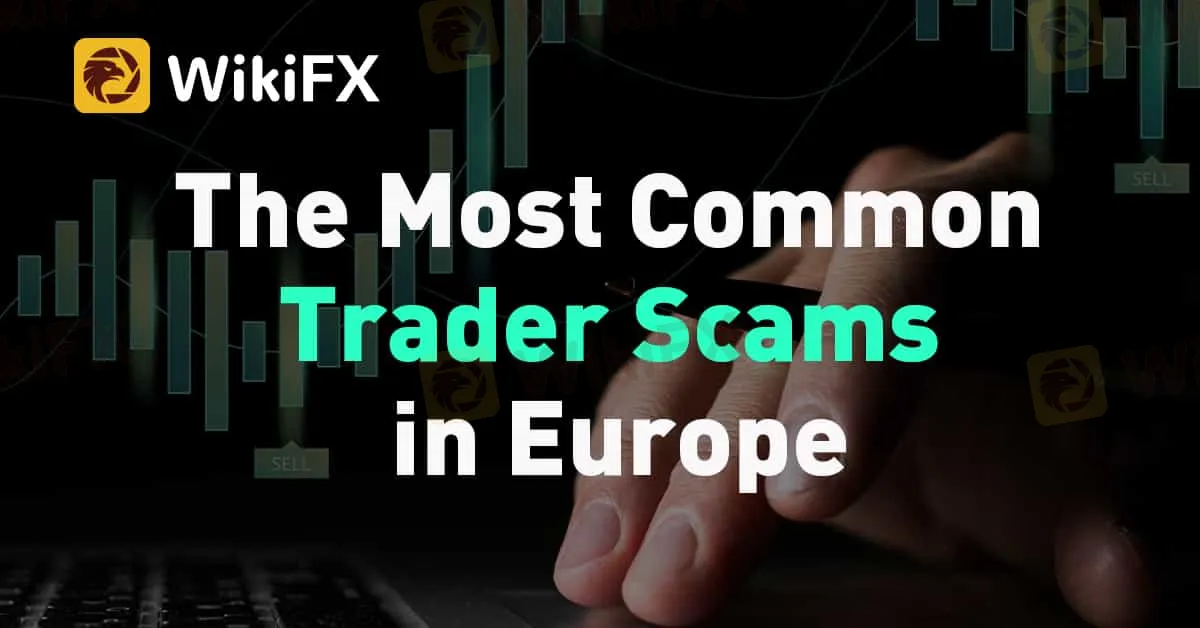简体中文
繁體中文
English
Pусский
日本語
ภาษาไทย
Tiếng Việt
Bahasa Indonesia
Español
हिन्दी
Filippiiniläinen
Français
Deutsch
Português
Türkçe
한국어
العربية
The Most Common Trader Scams in Europe
Abstract:While Europe provides a thriving environment for traders, it is essential to be aware of the potential scams that can threaten their success. Unfortunately, the financial industry is not immune to fraudulent activities, and traders must remain vigilant to protect their investments.

While Europe provides a thriving environment for traders, it is essential to be aware of the potential scams that can threaten their success. Unfortunately, the financial industry is not immune to fraudulent activities, and traders must remain vigilant to protect their investments.
One prevalent scam in Europe is the Ponzi scheme, where unscrupulous individuals or companies promise high returns on investment but use funds from new investors to pay off previous investors. Eventually, the scheme collapses, leaving investors with substantial losses. Traders should exercise caution and thoroughly research investment opportunities before committing their capital.
Another common scam is the unauthorized broker. These individuals or firms operate without proper licensing or regulation, making them susceptible to fraudulent activities. Traders should always verify the credentials of brokers, ensuring they are registered with the appropriate regulatory authorities.
Phishing scams are also a significant threat to traders in Europe. Scammers often send emails or create fake websites that mimic legitimate trading platforms, aiming to steal sensitive personal information or login credentials. It is crucial to exercise caution when providing personal information online and verify the authenticity of any communication received.
Signal scams, where individuals or companies offer trading signals or strategies that promise exceptional returns, are another common trap. Traders should be wary of extravagant claims and carefully assess the credibility and track record of signal providers before subscribing to their services.
Pump-and-dump schemes are yet another scam that traders need to be cautious about. In these schemes, manipulators artificially inflate the price of a specific asset through false or misleading statements, enticing unsuspecting traders to buy. Once the price reaches a certain level, the manipulators sell their holdings, causing the price to plummet and resulting in significant losses for those who bought in at inflated prices.
As traders navigate the European financial markets, it is crucial to remain vigilant and protect themselves from scams. One valuable resource to aid in this endeavor is WikiFX. With its extensive database of brokers, WikiFX provides reliable information, reviews, and ratings to help traders identify trustworthy brokers and avoid falling victim to scams. Visit WikiFX today and safeguard your trading journey.

Disclaimer:
The views in this article only represent the author's personal views, and do not constitute investment advice on this platform. This platform does not guarantee the accuracy, completeness and timeliness of the information in the article, and will not be liable for any loss caused by the use of or reliance on the information in the article.
Read more

Colorado Duo Accused of $8M Investment Fraud Scheme
ROI Cash Flow Fund duped investors of $8M in a fraudulent forex trading scheme. McPhee and Posey now face wire fraud and money laundering charges.

21 Arrested in Telangana Cryptocurrency Scam
Telangana Police arrests 21 in a cryptocurrency scam. Cybercriminals extorted money, laundered ₹8.2 crore, and transferred it via wallets linked to Dubai.

Two Californians Indicted for $22 Million Crypto and NFT Fraud
Gabriel Hay & Gavin Mayo indicted for $22M crypto fraud. Learn about the Vault of Gems scam and how to avoid NFT rug pull schemes.

Malaysian-Thai Fraud Syndicate Dismantled, Millions in Losses Reported
The Royal Malaysia Police (PDRM) has received 26 reports concerning the Nicshare and CommonApps investment schemes, both linked to a major fraudulent syndicate led by a Malaysian citizen. The syndicate’s activities came to light following the arrest of its leader by Thai authorities on 16 December.
WikiFX Broker
Latest News
Why is there so much exposure against PrimeX Capital?
Russia to Fully Ban Crypto Mining in 10 Regions Starting January 1, 2025
Two Californians Indicted for $22 Million Crypto and NFT Fraud
WikiFX Review: Is Ultima Markets Legit?
Colorado Duo Accused of $8M Investment Fraud Scheme
Malaysia Pioneers Zakat Payments with Cryptocurrencies
FCA's Warning to Brokers: Don't Ignore!
Financial Educator “Spark Liang” Involved in an Investment Scam?!
21 Arrested in Telangana Cryptocurrency Scam
WikiFX Review: Is FXTRADING.com still reliable?
Currency Calculator


